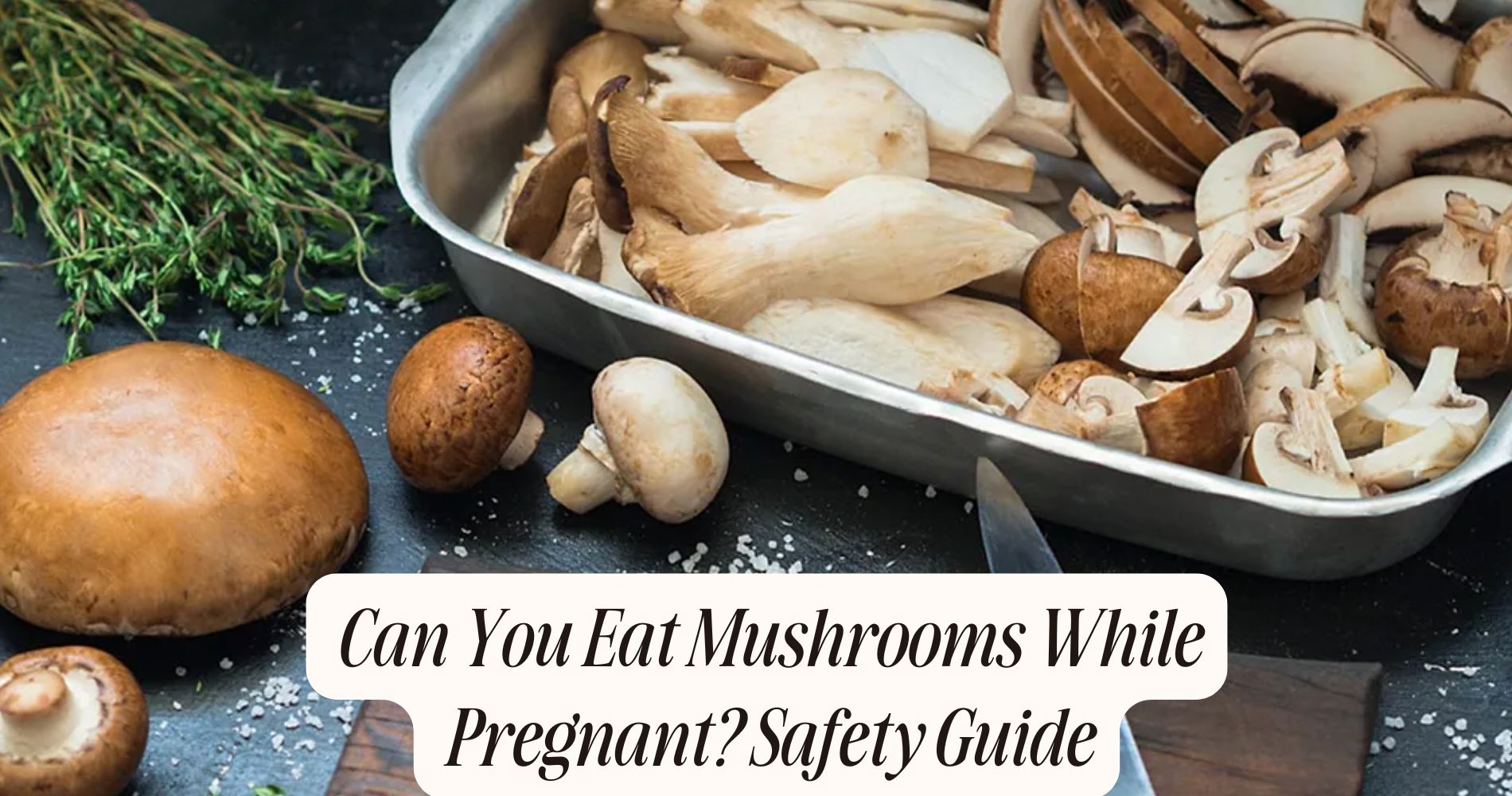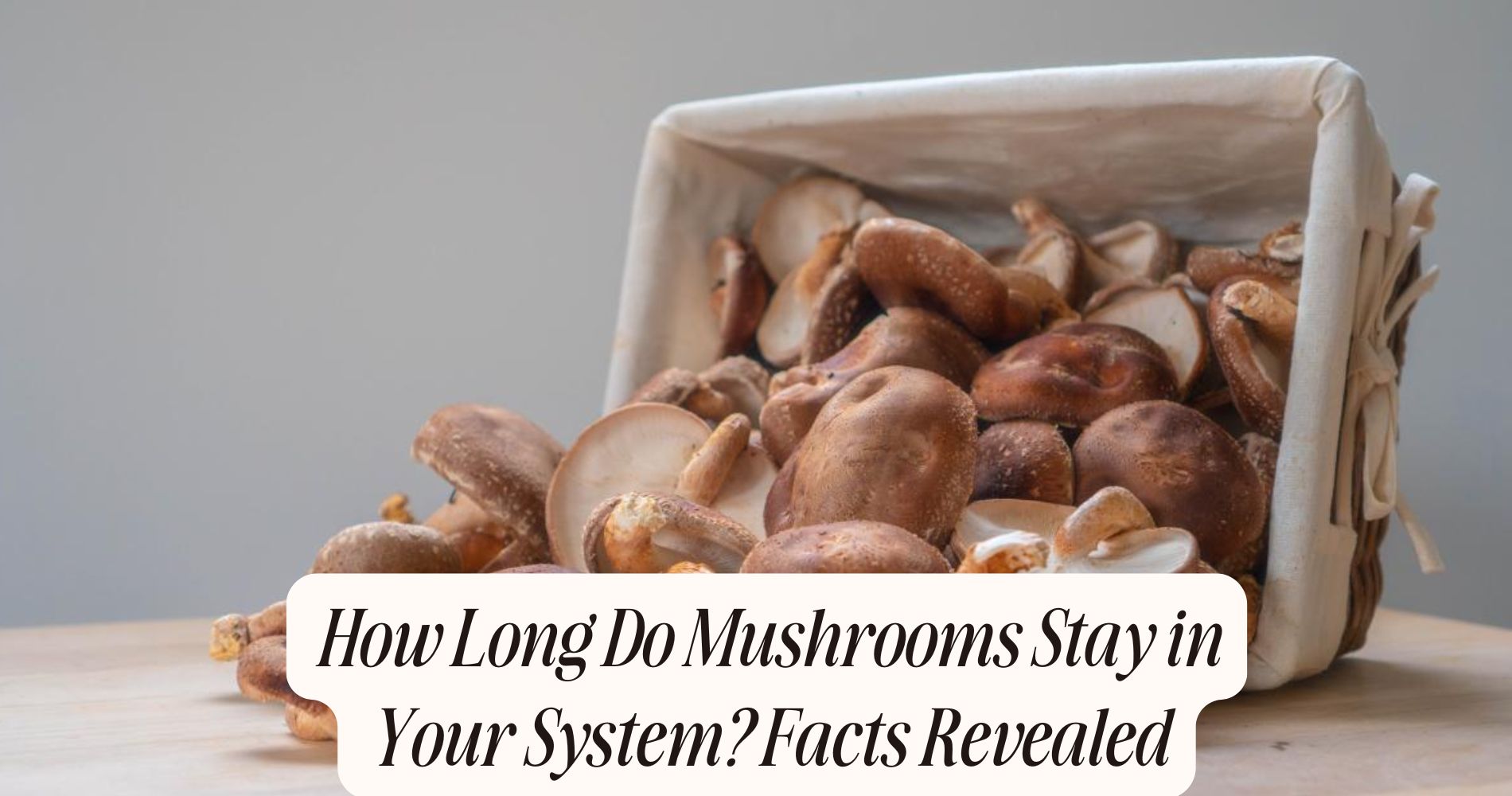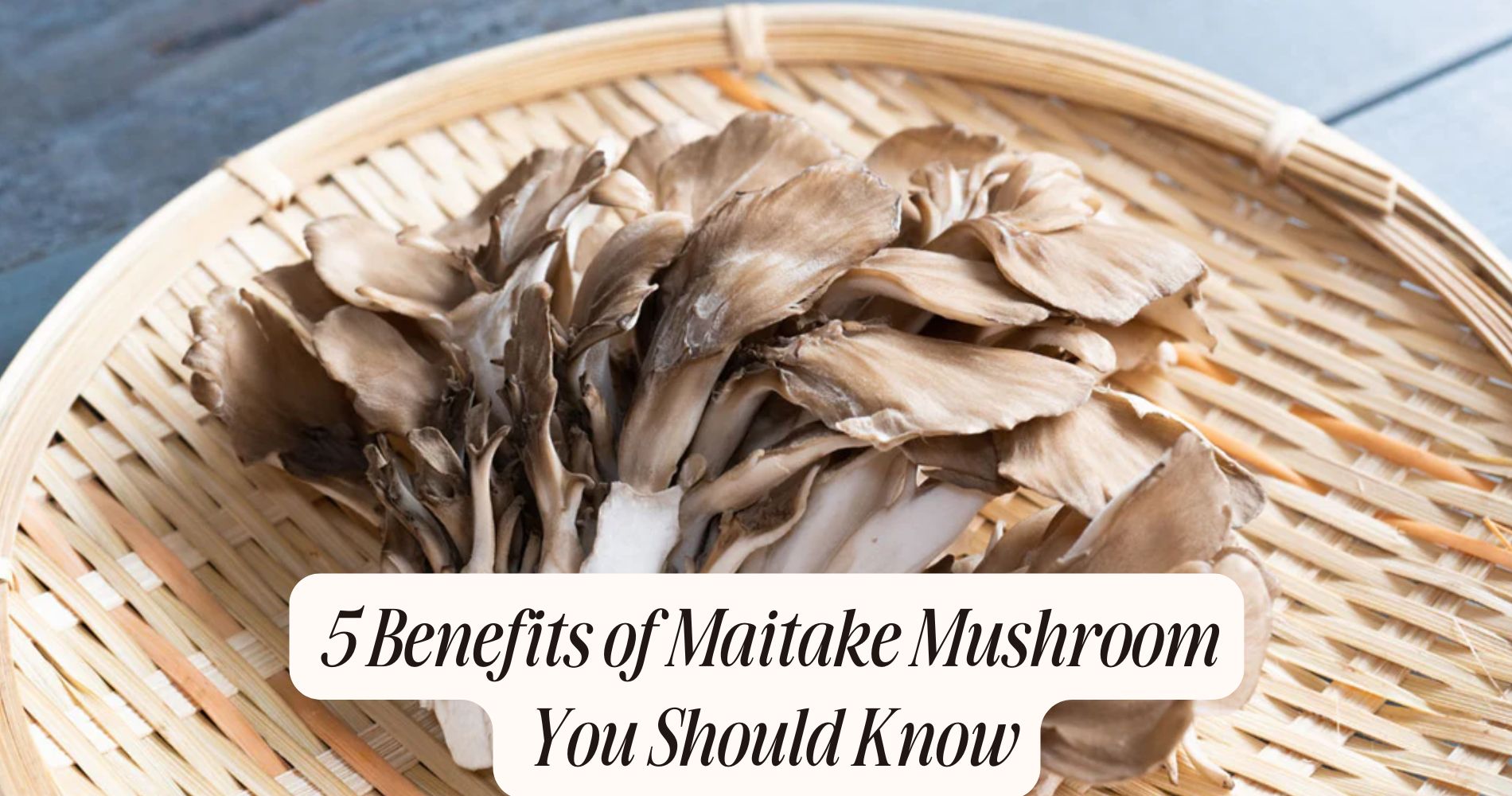
Can You Eat Mushrooms While Pregnant? Safety Guide
Can you eat mushrooms while pregnant? Yes, you can eat mushrooms while pregnant, but be cautious about the types you choose. Safe varieties like button, shiitake, and portobello offer essential nutrients. However, avoid wild mushrooms due to the risk of toxicity. Always cook mushrooms thoroughly to eliminate harmful bacteria, ensuring they reach at least 165°F (74°C). Aim for 1 to 2 cups of cooked mushrooms per week, but don't let them dominate your meals. Keep an eye out for any allergic reactions if you've had them before. Stick around to discover more tips on incorporating these healthy fungi into your pregnancy diet effectively.
Nutritional Benefits of Mushrooms
Mushrooms pack a powerful nutritional punch, making them a fantastic addition to your diet during pregnancy. They're low in calories but rich in essential nutrients like vitamins D, B, and minerals such as selenium and potassium. These nutrients support your immune system and help in the development of your baby.
Plus, the fiber in mushrooms can aid digestion, which is especially beneficial during pregnancy when you might experience digestive issues.
To maximize their health benefits, consider these cooking tips. Sauté mushrooms with a little olive oil to enhance their flavor while preserving nutrients. Adding them to soups or stir-fries is another great way to incorporate them into your meals.

Just remember to cook them thoroughly, as this can help eliminate any potential toxins and enhance their digestibility.
You can also experiment with different varieties like shiitake, cremini, and portobello, each offering unique flavors and nutrients.
Don't hesitate to throw them into salads, omelets, or grain bowls. By adding mushrooms to your diet, you're not just savoring delicious meals but also boosting your overall well-being during this important time.
Safe Mushroom Varieties
When it comes to enjoying mushrooms during pregnancy, choosing safe varieties is vital for both your health and your baby's. Some mushroom types aren't only safe but also nutritious and delicious. Common safe varieties include button mushrooms, cremini, and portobello. These mushrooms are widely available and perfect for various culinary uses, from soups to stir-fries.
You can also enjoy shiitake and oyster mushrooms, both of which offer unique flavors and health benefits. Shiitake mushrooms are known for their immune-boosting properties, while oyster mushrooms are rich in vitamins and minerals. They can be sautéed, grilled, or added to pasta dishes, making them versatile options for your meals.

Always verify that you're purchasing mushrooms from reputable sources, as this reduces the risk of contamination. Fresh mushrooms should be firm and free from any blemishes.
Cooking mushrooms thoroughly is vital, as it helps eliminate potential harmful bacteria, making them safer for you and your baby.
Mushrooms to Avoid
When you're pregnant, it's essential to steer clear of certain mushrooms that can be toxic.
Some raw varieties pose additional risks that could affect your health and your baby's.
Staying informed about which mushrooms to avoid can help keep you safe during this important time.
Toxic Mushroom Varieties
Avoiding toxic mushroom varieties is essential for pregnant women to guarantee both their health and their baby's safety. Certain mushrooms can cause severe health issues, so you must be vigilant about mushroom identification. The most dangerous varieties include the Death Cap, Destroying Angel, and the Fly Agaric. These mushrooms can lead to serious toxicity symptoms, including nausea, vomiting, and liver failure.
When foraging or buying mushrooms, always make sure you know exactly what you're dealing with. If you're unsure, it's best to err on the side of caution and avoid consuming them. One helpful tip is to only buy mushrooms from reputable sources, like grocery stores or farmers' markets, where you can trust the quality and safety.
Even if a mushroom looks appealing, don't take any risks. Many edible mushrooms have toxic look-alikes, making proper identification critical.
If you or anyone else experiences toxicity symptoms after consuming mushrooms, seek medical attention immediately. Remember, your focus should always be on your health and that of your baby, so prioritize safety when it comes to mushrooms during pregnancy.
Raw Mushroom Risks
Consuming raw mushrooms during pregnancy can pose significant health risks, so it's important to steer clear of them.
Raw mushrooms can harbor harmful raw mushroom pathogens that may lead to serious infections. These pathogens aren't always eliminated through washing, making them a gamble for your health and your baby's.
Eating raw mushrooms can also cause gastrointestinal issues like nausea, vomiting, and diarrhea, which can be especially concerning during pregnancy when your body is already under stress.
These symptoms can lead to dehydration, putting you and your baby at risk.
Additionally, some varieties of mushrooms are known to be toxic even when cooked, so the risk increases when consumed raw. Even if you think a particular mushroom is safe, it's better to avoid taking chances.
Cooking mushrooms thoroughly can kill off harmful pathogens and reduce the risk of foodborne illnesses.
If you're craving mushrooms, opt for cooked varieties to enjoy their flavor while keeping your pregnancy safe.
Always consult your healthcare provider for personalized advice regarding your diet during this important time. Safety should always come first for you and your baby.
Cooking Methods for Safety
When you're pregnant, cooking mushrooms properly is essential for your safety.
Make certain to avoid raw mushrooms, as they can carry harmful bacteria and toxins.
Instead, focus on achieving the right cooking temperature to guarantee they're safe to eat.
Cooking Temperature Matters
Cooking mushrooms thoroughly is vital for your health, especially during pregnancy. This means you need to pay attention to cooking techniques and adhere to temperature guidelines. When preparing mushrooms, aim to cook them until they reach an internal temperature of at least 165°F (74°C). This temperature guarantees that any harmful bacteria or toxins are eliminated, making them safe for you and your baby.
You can use various cooking methods to achieve this safe temperature. Sautéing, roasting, or grilling are all great choices. Just be sure to give them enough time in the heat. If you're using a microwave, make sure to stir the mushrooms halfway through to promote even cooking.

Avoid shortcuts that might leave mushrooms undercooked, as this can pose risks during your pregnancy. Remember, while mushrooms are nutritious, they can harbor potential contaminants if not prepared properly.
Avoid Raw Mushrooms
Raw mushrooms can pose health risks during pregnancy, so it's best to skip them altogether. Eating mushrooms raw increases your chances of exposure to harmful bacteria and potential mushroom contamination. These contaminants can lead to foodborne illnesses, which are particularly risky for you and your developing baby.
Cooking mushrooms thoroughly eliminates most harmful pathogens and markedly reduces the risk of digestive issues. When you cook mushrooms, you not only make them safer to eat but also enhance their flavor and texture.
Whether you sauté, grill, or bake them, make sure they reach the appropriate cooking temperature to kill any unwanted bacteria.
If you're craving mushrooms, opt for well-cooked varieties in your favorite dishes like stir-fries, soups, or casseroles. This way, you can enjoy their nutritional benefits while prioritizing your health and your baby's safety.
Potential Risks of Mushrooms
While many mushrooms are safe and nutritious, it's important to be aware of the potential risks they pose during pregnancy. One significant concern is mushroom contamination. Wild mushrooms can easily be mistaken for toxic varieties, which can lead to severe health issues for both you and your baby. It's essential to only consume mushrooms from reputable sources to minimize this risk.
Another concern is how you prepare mushrooms. Proper cooking techniques are critical to eliminate harmful bacteria and pathogens that might be present. Always cook mushrooms thoroughly before eating them, as this can help reduce the chances of foodborne illnesses.
Avoid using raw or undercooked mushrooms, as they're more susceptible to contamination. Additionally, certain mushrooms, such as those found in the wild, can be harmful and should be avoided altogether.
Stick to store-bought varieties that are known to be safe, like button, shiitake, or portobello mushrooms. By being cautious about the sources and preparation methods, you can enjoy mushrooms while minimizing potential risks during your pregnancy.
Always consult your healthcare provider if you have any specific concerns or questions about your diet.
Recommended Serving Sizes
Understanding the safe consumption of mushrooms during pregnancy also involves knowing the recommended serving sizes. While mushrooms can be a nutritious addition to your diet, practicing portion control is essential.
It's generally safe to consume about 1 to 2 cups of cooked mushrooms per week. This amount allows you to enjoy their benefits without overdoing it.
When incorporating mushrooms into your meals, consider serving suggestions that include them as an ingredient rather than the main event. For instance, add sautéed mushrooms to pasta dishes, stir-fries, or omelets.
If you're making a soup, a handful of mushrooms can enhance flavor while keeping your overall intake within recommended limits.
Allergies and Sensitivities
If you're pregnant and considering adding mushrooms to your diet, it's important to be aware of potential allergies and sensitivities. Some people experience mushroom allergies, which can range from mild to severe. Symptoms might include hives, itching, swelling, or gastrointestinal distress.
If you've had a previous allergic reaction to mushrooms, it's best to avoid them altogether during your pregnancy.

Even if you've never had a reaction before, be cautious. Pregnancy can change how your body reacts to certain foods, leading to new sensitivity reactions. If you experience any unusual symptoms after consuming mushrooms, consult your healthcare provider immediately.
Additionally, keep in mind that some mushrooms can cause adverse effects even in those without a prior allergy. Proper cooking is essential, as raw or undercooked mushrooms may lead to digestive issues.
If you're unsure about your tolerance, you might want to start with a small amount and monitor your body's response. Always prioritize your health and that of your baby.
Pay attention to how you feel after eating mushrooms and be proactive about discussing any concerns with your doctor.
Incorporating Mushrooms Into Diet
Mushrooms can be a nutritious addition to your diet during pregnancy, and many expectant mothers find them enjoyable. They offer essential vitamins and minerals, such as B vitamins, selenium, and potassium, which support both you and your growing baby.
To incorporate mushrooms into your meals, experiment with various mushroom recipes that suit your taste. You can sauté them with garlic and herbs for a delicious side dish, or add them to omelets for a hearty breakfast. Consider tossing them in salads, blending them into soups, or mixing them into pasta dishes.
The versatility of mushrooms makes it easy to include them in various meals, enhancing both flavor and nutrition. When you include mushrooms in your diet, aim for dietary balance by pairing them with a variety of other food groups.
Combine them with whole grains, lean proteins, and plenty of fruits and vegetables to guarantee you're getting a well-rounded intake of nutrients. By being creative with mushroom recipes and mindful of your overall dietary balance, you'll not only enjoy the taste but also benefit from the healthful properties mushrooms have to offer during your pregnancy.
Expert Opinions and Guidelines
When considering mushrooms in your pregnancy diet, it's important to consult expert opinions and guidelines to guarantee safety and nutritional benefits.
Many healthcare professionals suggest that opting for commercially grown mushrooms, like button, shiitake, and portobello, is generally safe. These varieties are rich in vitamins and minerals, offering valuable nutrients during pregnancy.
Expert insights emphasize the need to avoid wild mushrooms, as they can be difficult to identify and may contain harmful toxins. Additionally, cooking mushrooms thoroughly is essential to eliminate potential bacteria and ascertain they're safe to consume.
Dietary recommendations often include a variety of foods, and mushrooms can play a supportive role in a balanced diet. However, moderation is key.
It's wise to limit your intake to a few servings per week to avoid any adverse reactions. Always listen to your body, and if you experience any discomfort after eating mushrooms, consult your healthcare provider for tailored advice.
Frequently Asked Questions
Can Consuming Mushrooms Affect Fetal Development During Pregnancy?
Consuming mushrooms can impact fetal development. While they offer nutritional benefits, some mushrooms may contain potential toxins. You should research the types you eat and consult your healthcare provider to guarantee safety during pregnancy.
Are There Any Medicinal Mushrooms Safe for Pregnant Women?
Yes, some medicinal mushroom varieties, like reishi and cordyceps, offer nutritional benefits. However, always consult your healthcare provider to guarantee safety and avoid any potential risks during your pregnancy. Your health comes first!
How Should I Store Mushrooms During Pregnancy?
To store mushrooms properly, keep them in a paper bag in the refrigerator. Maintaining a refrigerator temperature of 34-40°F helps preserve their freshness and flavor, ensuring you enjoy them at their best during pregnancy.
Can Mushrooms Cause Foodborne Illnesses While Pregnant?
Yes, mushrooms can harbor foodborne pathogens that might lead to illnesses. To guarantee mushroom safety, always wash them thoroughly, cook them properly, and store them correctly. This helps minimize any risks while you're pregnant.
Are There Any Cultural Beliefs About Eating Mushrooms During Pregnancy?
You'll find various cultural beliefs surrounding mushrooms. In some cultures, mushrooms symbolize fertility and health, while others impose taboos, viewing them as harmful during pregnancy. It's wise to explore these perspectives before making dietary choices.
Conclusion
In conclusion, you can enjoy mushrooms during pregnancy, but it's essential to choose safe varieties and prepare them properly. Stick to well-cooked options and avoid any potentially harmful types. Always listen to your body and consult with your healthcare provider if you have concerns about allergies or sensitivities. With the right precautions, you can incorporate nutritious mushrooms into your diet and reap their benefits while ensuring both you and your baby stay safe.




